 Résonance Magnétique Nucléaire
Résonance Magnétique Nucléaire
Characterisation of polymers by nuclear magnetic resonance spectroscopy
This platform of the Lyon Institute of Chemistry, hosted at the INSA and Axel’One Campus sites of the IMP, includes three RMN HR 400 MHz spectrometers equipped with probes and specific accessories for the analysis of polymers and materials in solution or in a solid state: RMN 1D/2D multi-core, high temperature, HR-MAS, diffusion. It also has a 20 MHz low-field spectrometer dedicated to molecular dynamics studies.
Area of study and expertise
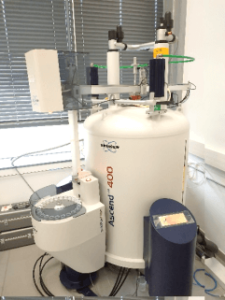 Structural determination (elucidation of polymerisation mechanisms, characterisation of functional polymers, in-depth study of chain microstructure, structural defects, sequence distribution, media and stereoisomerism)
Structural determination (elucidation of polymerisation mechanisms, characterisation of functional polymers, in-depth study of chain microstructure, structural defects, sequence distribution, media and stereoisomerism)- Kinetics/quantification studies (polymerisation follow-ups, chemical modification of polymers, copolymerisation reactivity reports, DPn)
- Self-diffusion (demonstration of grafting, determination of molar masses, study of complex formulations, polymer mixtures)
- Structure and dynamics of solid-state chains (kinetic monitoring and cross-linking rates, characterisation of multiphase materials, composite materials, study of polymer mixtures, formulations)
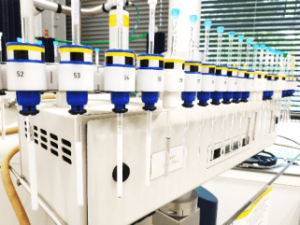

Examples of studies include
1H DOSY NMR Determination of the Molecular Weight and the Solution Properties of Poly(N-acryloylmorpholine) in Various Solvents
Macromolecular Chemistry and Physics (2016) 217, 2286-2293
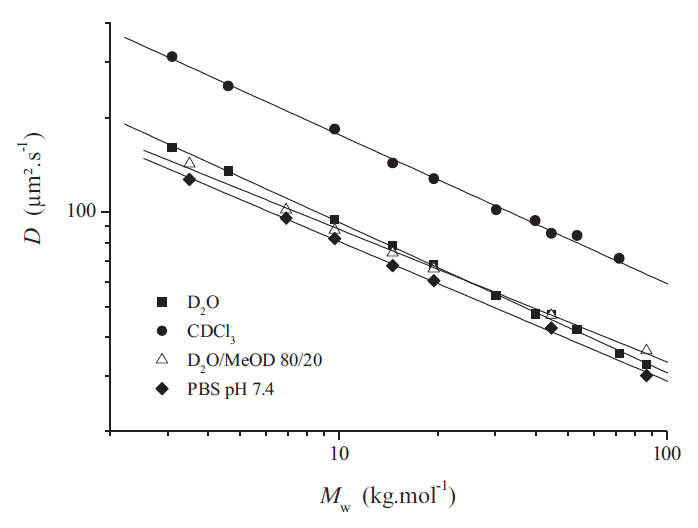
Towards thermoplastic hemicellulose: Chemistry and characteristics of poly-(ε-caprolactone) grafting onto hemicellulose backbones
Materials and Design (2018) 153, 298–307
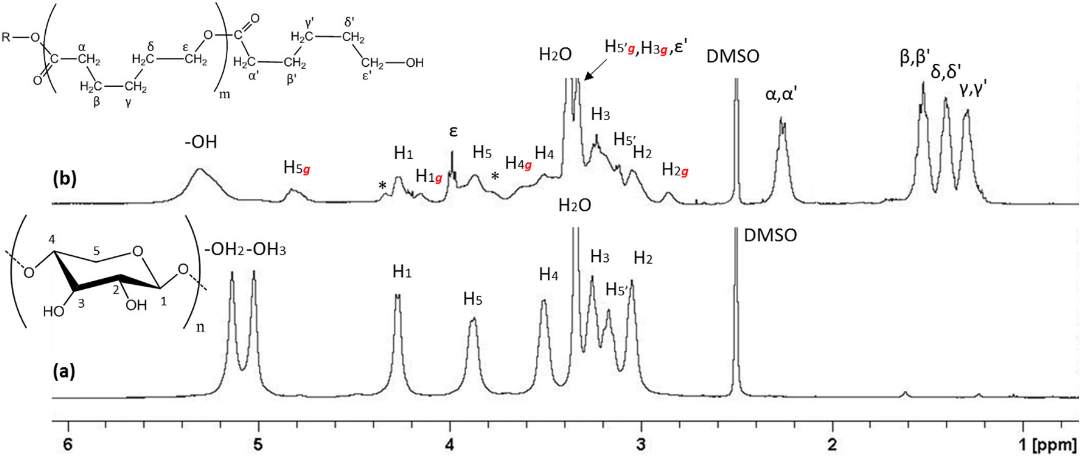
Identification of a Transient but Key Motif in the Living Coordinative Chain Transfer Cyclocopolymerization of Ethylene with Butadiene
ACS Catalysis (2019) 9, 9298−9309
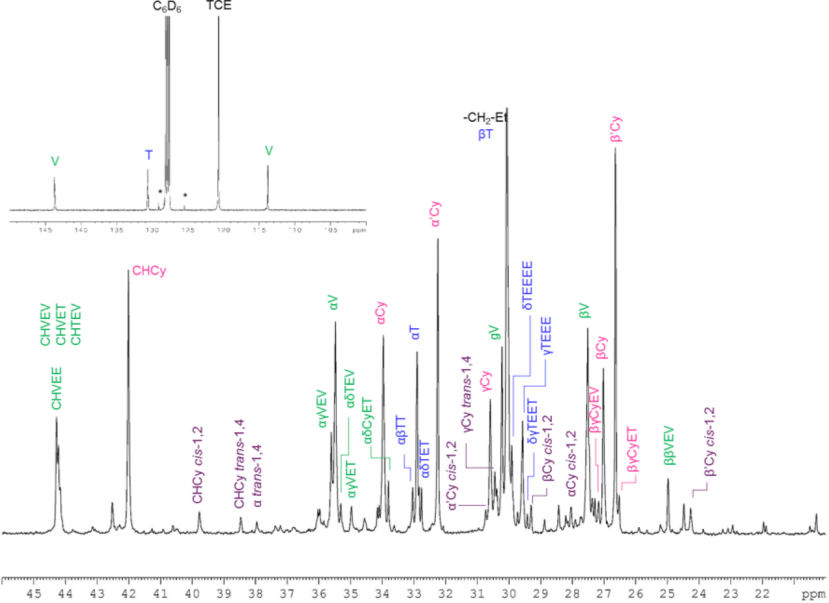
Mechanical Properties Enhancement while Decreasing the Viscosity of Copolyether−Ester from In Situ Formation of Star-Based Structures by Reactive Extrusion
Industrial & Engineering Chemistry Research (2020) 59, 16579−16590
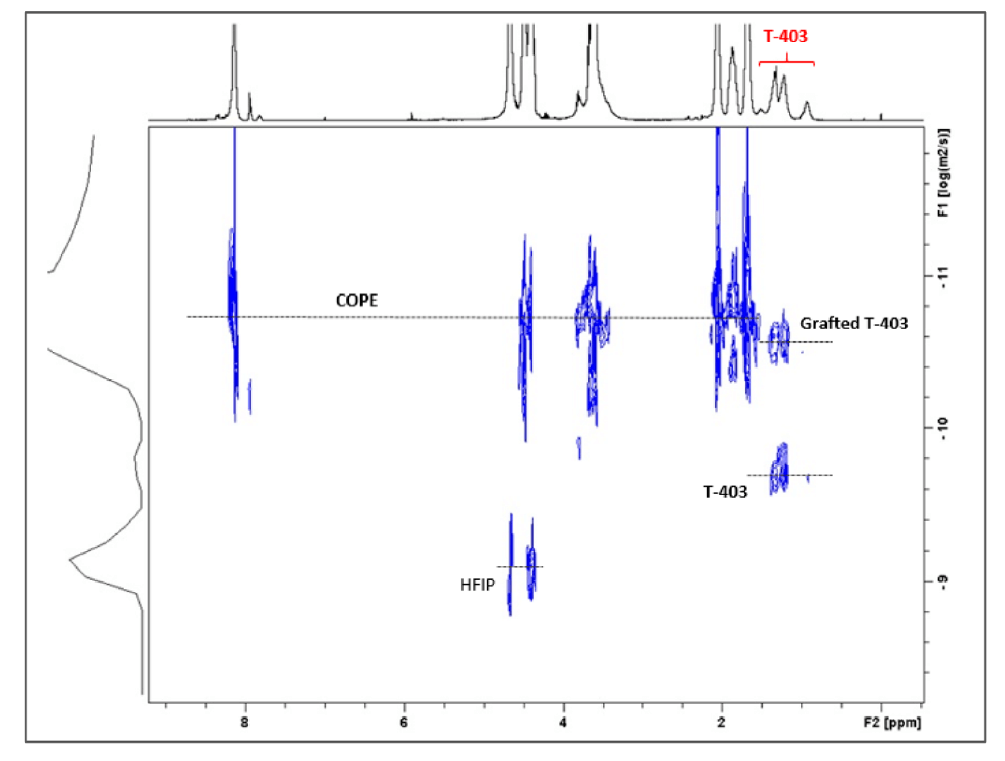
Identification of a Transient but Key Motif in the Living Coordinative Chain Transfer Cyclocopolymerization of Ethylene with Butadiene
ACS Catalysis (2019) 9, 9298−9309
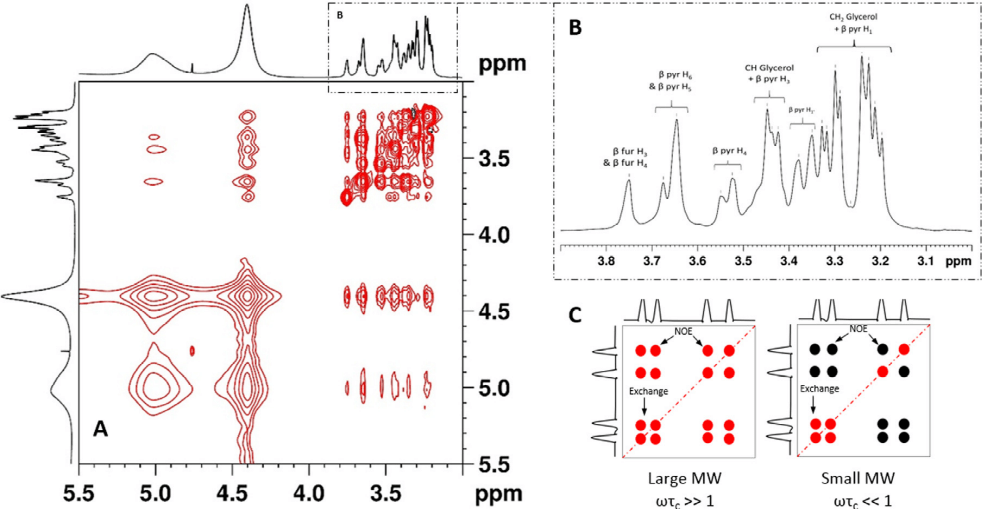
Equipment
- Two Bruker HR Liquid AVANCE III and II 400MHz spectrometers
- A solid/liquid Bruker HR AVANCE III 400 MHz spectrometer
- A Bruker low field MQ20 MHz spectrometer
- Four measuring probes in solution:
– BBFO+ 5 mm (multi-nuclei and fluoride, analysis up to 120°C)
– BBIDiff 5 mm (inverse multi-nuclei, diffusion measurements – Gmax = 2.8T/m)
– Selective 1H/13C 10 mm (high temperature up to 150°C)
– Selective 1H/29Si 10 mm (pattern signal Q minimised) - A selective HR-MAS 4mm probe 1H/13C (gels, cross-linked materials and supported polymers)
- Two probes for solid-phase analysis:
– CP-MAS 4mm (multi-nuclei and proton)
– CP-MAS 4mm (multi-nuclei and fluoride)